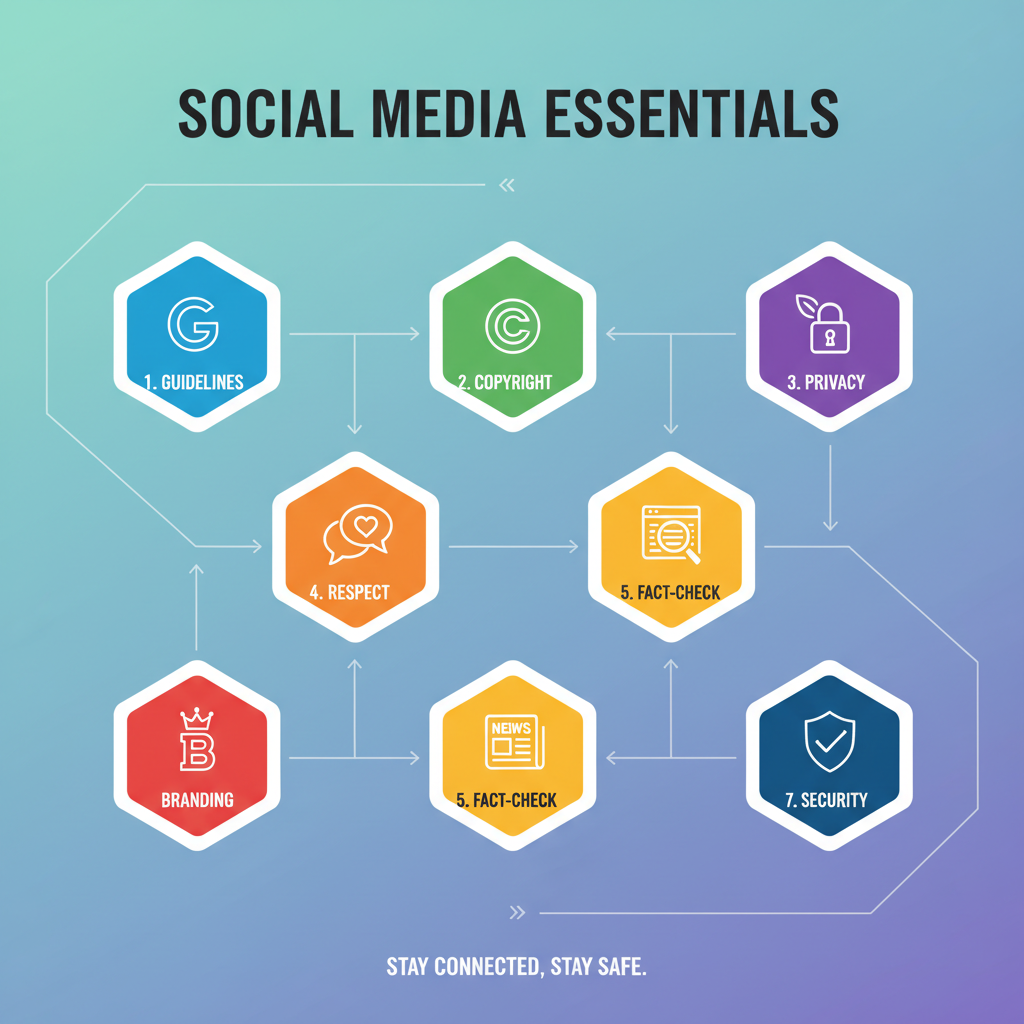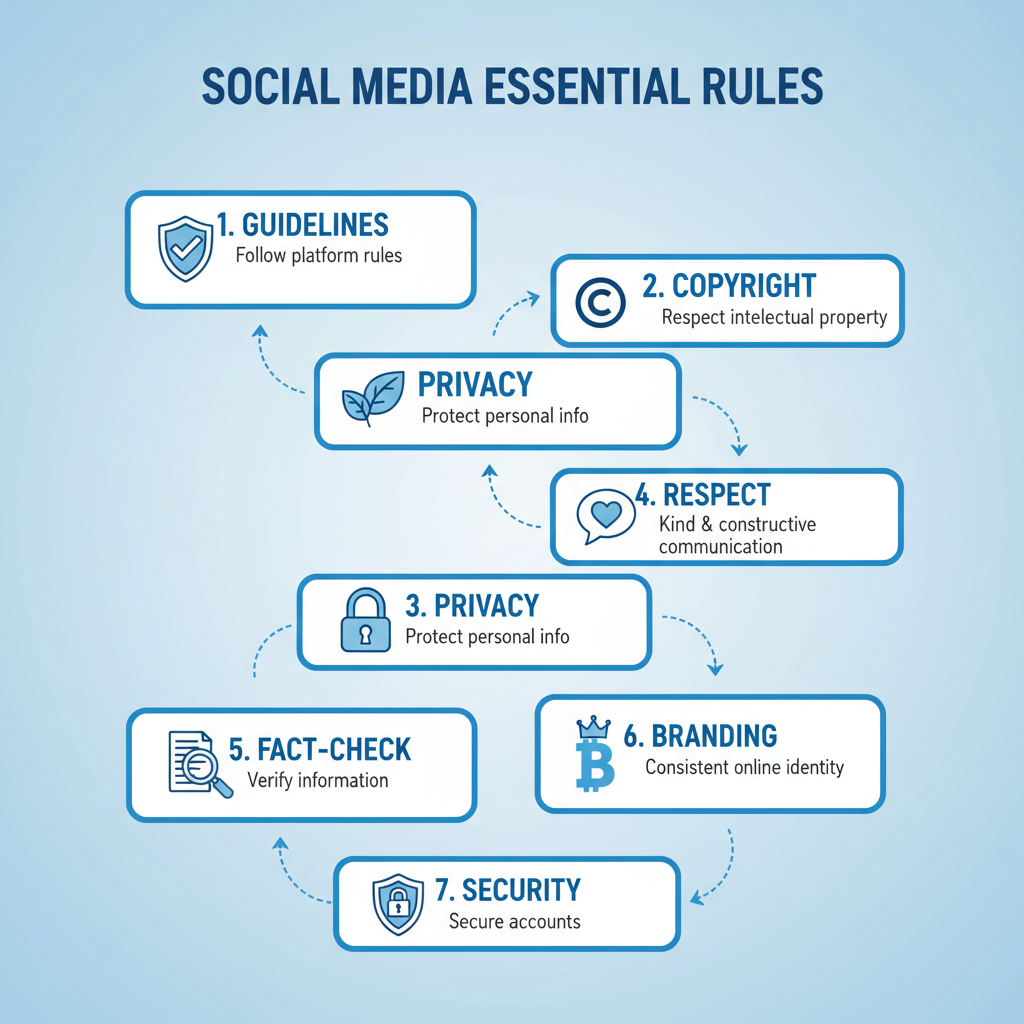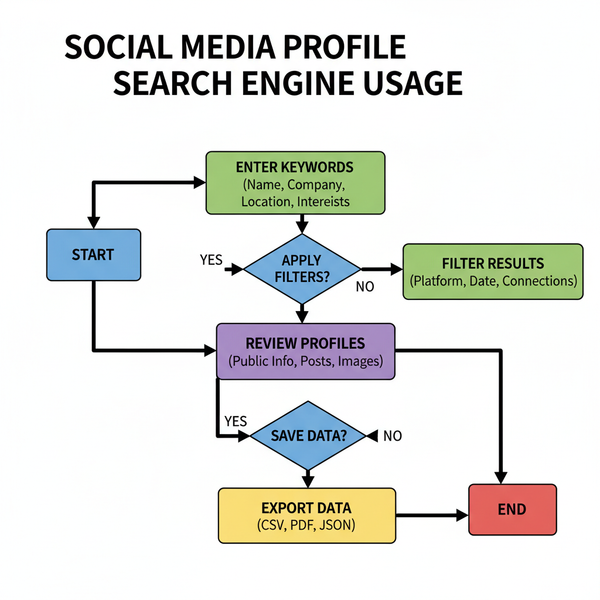Essential Rules in Social Media for Safe and Respectful Use
Learn essential rules for safe, respectful social media use with tips on copyright compliance, privacy protection, and avoiding misinformation.

Essential Rules in Social Media for Safe and Respectful Use
In today’s hyper-connected world, social media serves as a hub for communication, marketing, and community building. Whether you’re a casual user, influencer, or business owner, knowing and applying the essential rules in social media is crucial for protecting yourself, maintaining online respect, and strengthening credibility. This comprehensive guide outlines the best practices you should follow to stay safe, ethical, and impactful in digital spaces.

---
Understand Platform-Specific Guidelines and Community Standards
Each social media network—Facebook, Instagram, LinkedIn, TikTok, and others—has its own community standards or terms of service. These help maintain safety and limit harmful content.
- Read rules carefully before posting.
- Stay informed: policies can change frequently.
- Avoid restricted materials such as hate speech, spam, or explicit violence.
Pro Tip: Bookmark the official guidelines page for each platform you use so you can check for updates regularly.
---
Respect Copyright Laws and Give Proper Credit to Sources
Sharing someone else’s content without permission may cause copyright problems—even if it's publicly accessible. Original creators retain their rights.
Best practices:
- Request permission before using another creator’s work.
- Include clear attribution in captions or descriptions.
- Use royalty-free or Creative Commons–licensed materials.

| Type of Content | Permission Required? | Proper Credit Example |
|---|---|---|
| Photography | Yes | Photo by @username |
| Music | Yes | Track by Artist Name, licensed via XYZ |
| Quotes | No (public domain or fair use) | "Quote" — Author |
---
Avoid Posting Sensitive Personal Information
Oversharing can make you vulnerable to privacy and security risks such as identity theft or online harassment. Refrain from posting:
- Home address, phone number, or email.
- Financial details and passwords.
- Confidential workplace information.
Always use private messaging and adjust privacy settings to safeguard sensitive content.
---
Practice Respectful and Inclusive Communication
Healthy online interactions require empathy and cultural sensitivity. The wrong words can damage relationships and reputations.
Guidelines:
- Avoid offensive or discriminatory language.
- Understand different cultures and viewpoints.
- Listen actively and respond rather than react aggressively.
An inclusive voice makes communities more welcoming.
---
Verify Information Before Sharing to Avoid Misinformation
Unverified posts can contribute to misinformation and erode trust.
Steps to verify:
- Check source credibility.
- Cross-reference with reputable news or fact-checkers.
- Avoid sharing if verification is missing.
Example verification workflow:
1. Read the claim carefully.
2. Identify the source.
3. Search for credible confirmation.
4. Decide whether sharing adds value.---
Maintain Consistent and Authentic Branding for Businesses
Consistent branding builds trust and brand recognition across channels. This consistency should cover:
- Logo and color scheme.
- Tone of voice.
- Content aligned with brand principles.
Avoid false claims—authenticity strengthens customer relationships.
---
Follow Privacy Settings and Security Best Practices
Privacy controls let you manage who can view your posts. Employ these tools for better data protection.
Security tips:
- Activate two-factor authentication.
- Review app permissions frequently.
- Use strong, unique passwords.

---
Engage Meaningfully, Avoid Spammy Behavior
Social platforms reward authentic engagement. Spam tactics—such as mass-following, repetitive posts, or irrelevant hashtags—can trigger penalties.
Meaningful engagement involves:
- Replying thoughtfully to comments.
- Joining discussions genuinely.
- Offering value over aggressive selling.
---
Be Aware of Legal Implications for Defamation or Harassment
Your online statements can have serious legal consequences.
Defamation: spreading false statements that damage someone’s reputation.
Harassment: repeated intimidation.
Avoid these issues by:
- Stating only verified facts.
- Avoiding personal attacks.
- Respecting boundaries.
If a conflict arises, resolve it privately or seek legal counsel before posting.
---
Monitor Analytics to Adapt Content Strategies Ethically
Analytics offer insights into audience behavior. Use data to enhance content—but steer clear of manipulative practices.
Metrics to track:
- Engagement rate.
- Reach and impressions.
- Click-through rate (CTR).
| Metric | Purpose | Ethical Use |
|---|---|---|
| Engagement Rate | Measure audience interest | Create more relevant content |
| Reach | Track audience growth | Target appropriate groups without manipulation |
| CTR | Assess link performance | Optimize without clickbait |
---
Summary and Next Steps
By following these essential rules in social media, you’ll create a safer and more respectful environment—protecting your own interests while contributing positively to the online community.
Key takeaways:
- Understand and respect platform and copyright rules.
- Safeguard your privacy.
- Communicate inclusively and fact-check before sharing.
- Keep branding consistent and authentic.
- Use analytics and engagement ethically.
Start applying these principles today to enhance your social media presence while nurturing trust, safety, and credibility.




